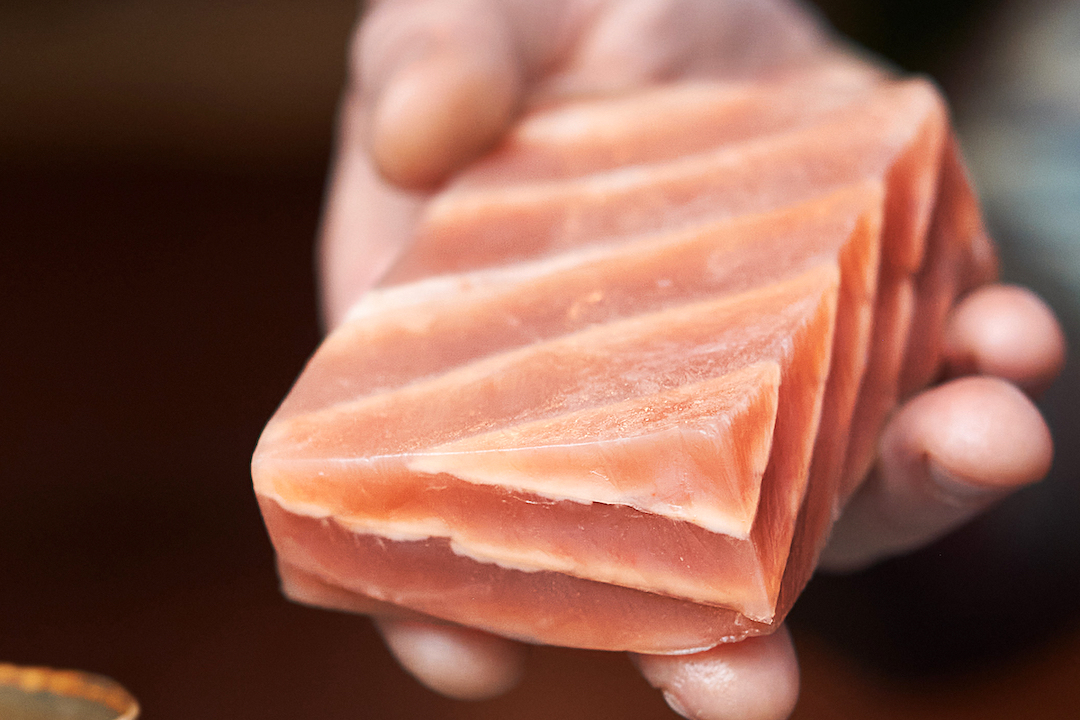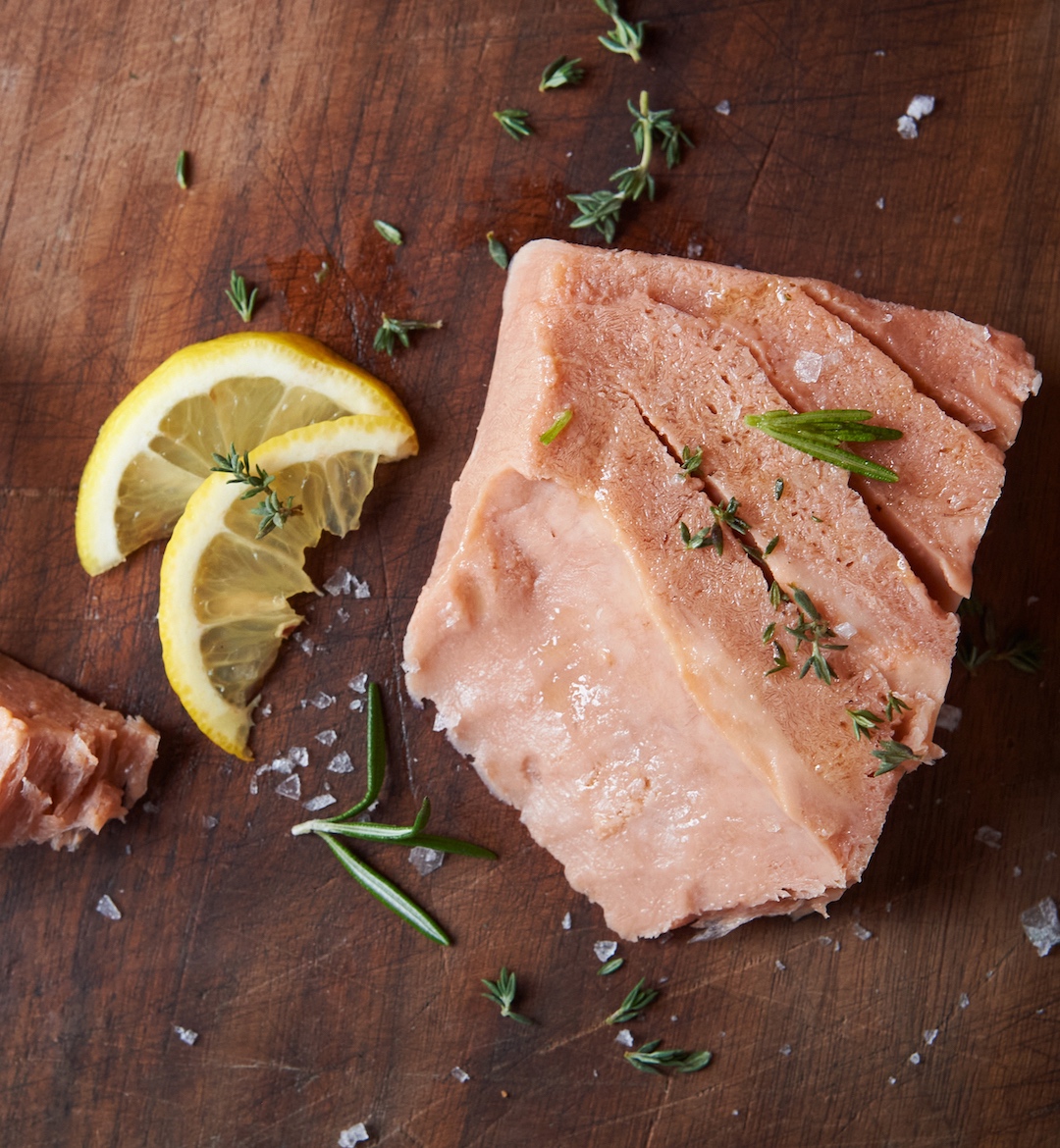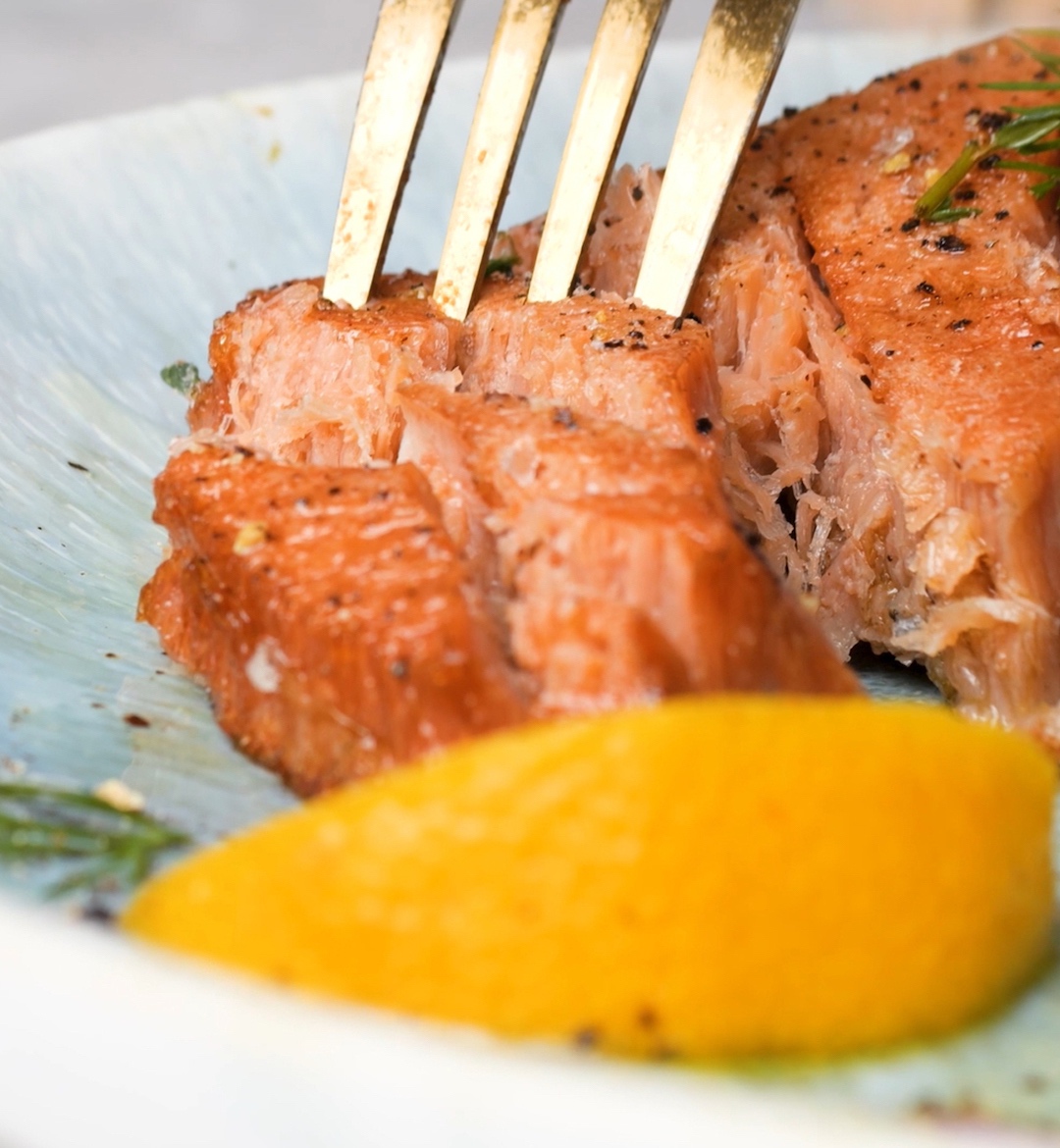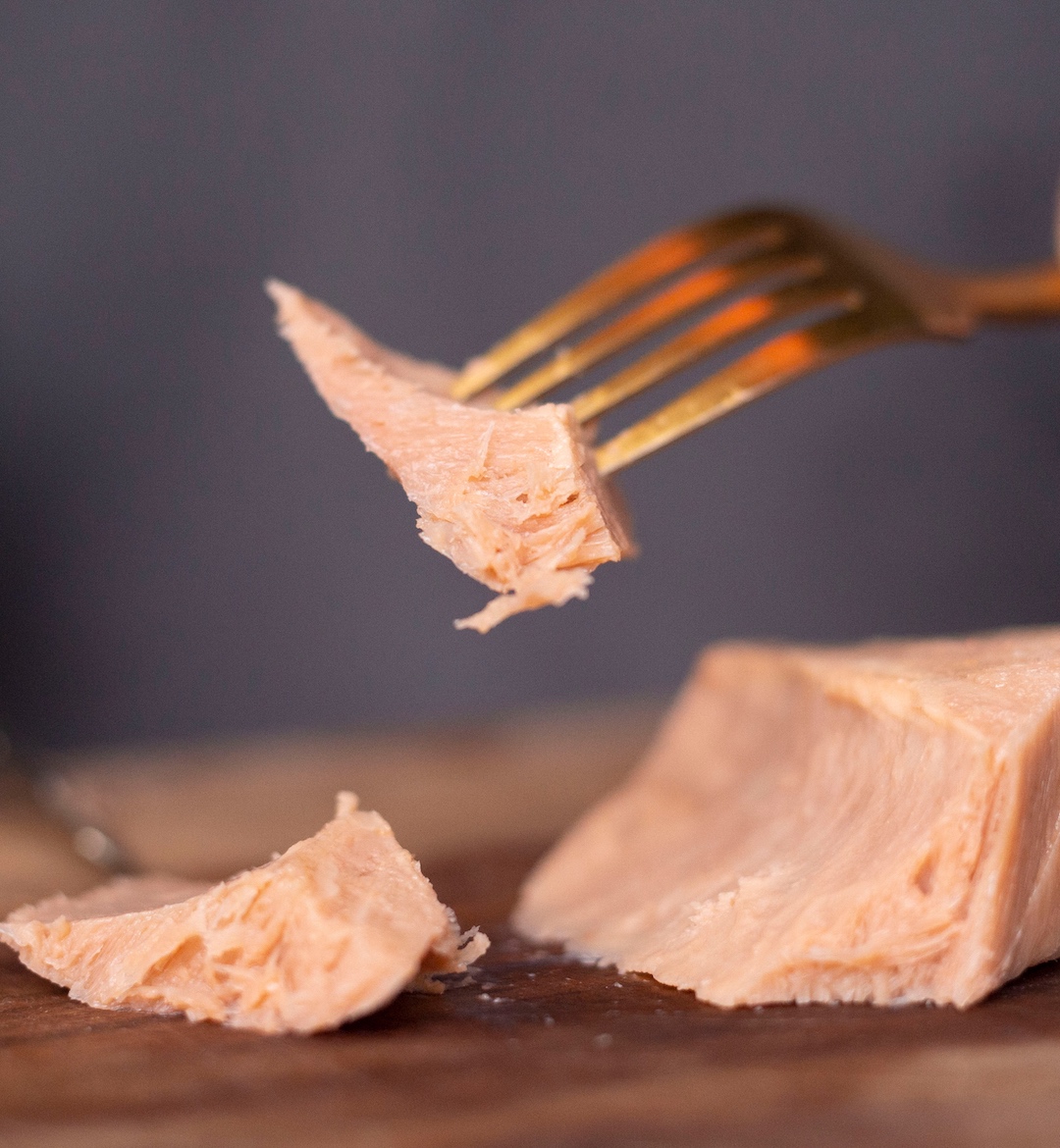It Looks, Flakes, And Tastes Like Salmon… But It’s Not From The Sea
By Alexa Heah, 08 Feb 2023

Plant-based seafood innovator New School Foods has unveiled its first product—a salmon filet produced with muscle fiber and scaffolding technology that looks, cooks, tastes, and even flakes like wild salmon you find in grocery stores.
CEO Christopher Bryson told TechCrunch that compared to the numerous meat alternatives on the market, the technology needed to create plant-based seafood is still “a new piece of the puzzle.”
Most faux seafood available at the moment is made using high-moisture extrusion, but due to the high heat used to pre-cook the food in this method, oftentimes the end product doesn’t yield the same texture or muscle fiber as actual fish.

As such, Bryson and his team decided to develop an entirely new technology from scratch, allowing the company to specialize in creating whole-cut seafood that gives off the same colors, flavors, fats, texture, and mouthfeel as the fish you’re accustomed to.
Instead of heating the alternative fish at high temperatures, New School Foods’ proprietary muscle fiber and scaffolding solution tap into cold-based processes to create a fish that initially looks “raw,” but resembles regular salmon filets when cooked.
Notably, the company claims its method differs from other food processing technologies as it uses off-the-shelf equipment to replicate, making it easier to scale globally. It chose to focus on whole cuts as a majority of meat sales in North America are bought as such.

“The next frontier of meat alternatives is whole cuts, and from day one we understood that New School Foods needed to solve two heavily connected issues: the quality of meat alternatives in-market, and the limited toolkit our industry uses to produce them,” said Bryson.
“What’s generally available for consumers now are rubbery, ground, pre-cooked products that will not convince the average customer to change their lifelong habits,” he added.
New School Foods plans to use its recent US$12 million in funding to expand its team of food scientists, scale its scaffolding platform, and build out its own research and production facility. It will also be launching a chef-only pilot program later this year to test out the salmon alternative.

[via TechCrunch and New School Foods / Business Wire, images via New School Foods]





